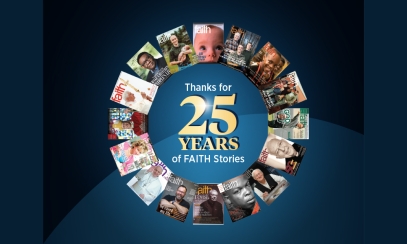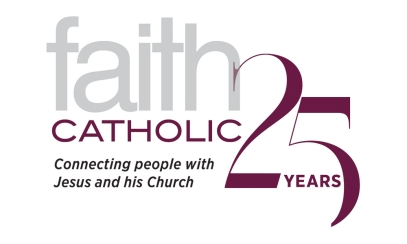The long climb out of hell
Rebuilding Burundi after the holocaust
Rebuilding Burundi after the holocaust
A week-long visit by an archbishop from Africa has had a profound impact on our parish community of St. Jude. Word of the archbishop’s visit came months earlier, as part of a letter informing me about who would be making our annual mission appeal. The reality of Archbishop Simon Ntamwana’s visit began with a simple, heartfelt greeting as we met in the parking lot in front of the church: “Hello, I am Simon, your brother.” Not exactly the sort of greeting I had expected from an archbishop.
With those simple words, a firm handshake and warm smile, our parish community welcomed a visitor whose personal story has touched us deeply. His story is deeply entwined with the recent history of the people of his archdiocese and nation. Archbishop Simon (as he is known to his people) came to us from Burundi, a small land-locked nation in eastern-central Africa with 8 million inhabitants. Burundi is neighbored by Rwanda to the north, Tanzania to the east and the Democratic Republic of the Congo to the west and south.
Like its northern neighbor, Burundi was overwhelmed by a wave of ethnic violence that began in 1994 when the presidents of both Rwanda and Burundi were killed in a plane crash. In the wake of these events, more than 200,000 Burundians were slaughtered and a years-long civil war ensued in Burundi. The violence finally ended in 2003, but not before thousands of Burundian children were left orphaned. Many of Archbishop Simon’s family were slaughtered and he has been a repeated target for assassination. The nation’s economy and infrastructure were left in tatters.
Archbishop Simon has made it his mission to do what might seem nearly impossible to outside observers. Over the next several years, he hopes to build orphanages to provide stable, loving care for his nation’s multitude of orphaned children. These centers will be places of education for children and adults alike. For the children, education will focus on basic skills like reading and writing. Eventually, the schools will expand to provide vocational and technical training that will allow young people to follow paths that will enable them to be part of the sweeping efforts to rebuild their nation’s infrastructure and economy. For the adults, the centers will focus on the work of reconciliation between the Hutu and Tutsi ethnic groups that were at the epicenter of violence that swept through Burundi. This work of reconciliation is grounded in Christ’s teachings about the value of and necessity for reconciliation. Much like the work that took place in South Africa a decade earlier, Archbishop Simon prays fervently that his people will come to know the truth about one another and will, in time, once again be able to live in peace and harmony with one another.
Immaculée Ilibagiza experienced first-hand the same horror of ethnic violence. The young Rwandan has an equally powerful story of faith and the same the fervent prayer for reconciliation among her own people. I have no doubt that with God’s grace, people like Immaculée and Archbishop Simon will make great inroads on their shared mission of peace and reconciliation.
By the end of his week with our parish community, sufficient funds had been donated to ensure the construction of an orphanage and school that welcomed its first children just last month. The Mukenke Welcome Center is just one step on a very long path that will, with God’s help, lead to reconciliation in a small nation half a world away. And so our journey in FAITH continues.



